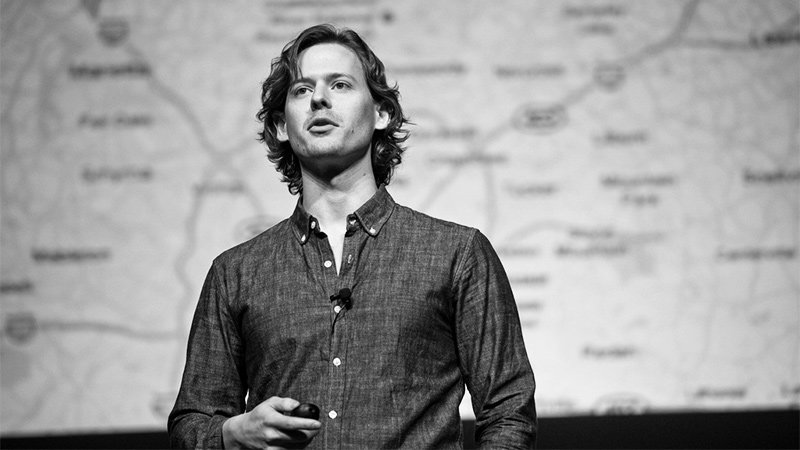Keeping the culture of innovation alive: Chobani’s CCO on removing ‘creative’ from job titles and lessons from the tech giants

Leland Maschmeyer was one of the speakers at the 2017 Better By Design CEO Summit and is the chief creative officer at Chobani, a US-based Greek yoghurt company.
Before you write Chobani off as just another fast-moving consumer good, consider this: The 12-year-old company overtook 52-year-old yoghurt giant Yoplait last year to become America’s biggest-selling yoghurt brand, with sales of nearly US$2 billion.
The brand is causing a stir in a market that was once closely held by heritage brands with its creative, entrepreneurial approach that, like other disrupter companies, focuses less on the product and more on the experience.
Its unconventional approach to the food business earned it the ninth spot on Fast Company’s most innovative companies of 2017 list.

Maschmeyer joined the company last year to take the helm at a newly created chief creative officer title. The 36-year-old previously held the same role at brand consultancy Collins, where he worked with the likes of Spotify, Facebook and Airbnb.
Like the company he now works for, Maschmeyer is a bit of a disrupter himself. Despite only being at the company since July, he has already restructured Chobani’s staff to follow the agile methodology over the waterfall methodology.
For those not in the know: The waterfall methodology is a structured, sequential design process that passes from from person to person or department to department, while the agile methodology follows an incremental approach with far more cross-collaboration.
“It was using a software production methodology to redesign what a food company should be,” Maschmeyer says.
“I immediately recognised it was necessary, it was just the friction of how to do that in a quick way with volume of work and elevate the quality. It was very disruptive, but everyone was enthusiastic to have a chance to be playful and think beyond their functional role.”
Maschmeyer also took issue with job titles at Chobani and felt like they were limiting, so he altered them so most included ‘designer’ in title, while getting rid of the word ‘creative’.
His argument? Every job requires creativity, not just the ones orientated around the arts.
“I despise the idea of ‘creative’ only applying to some people. We each have craftsmanship,” Maschmeyer says.
Project managers became process designers, PR and marketing roles became community designers and strategists became story designers.
Notably, Maschmeyer still has the word creative within his job title, he says it’s for outward-facing purposes because it holds more weight out in the marketplace.
Inside Chobani’s offices, he says the unity of identity created by the changes has improved the company’s craft.
The vision is to make the company a smaller-scale Starbucks, he says, with the same social activism roots and strong community following propelling it forwards.
“Economically, products and categories are being commodotised. It’s the end of the competitive advantage, the advantage now is the designing the journey with the brand that the customer goes through,” he says.
“How companies previously made money no longer works, so they have to find new ways to create topline, creative growth. It’s a processing of learning and failing.”
After consulting for huge, aspirational brands like Spotify, Airbnb and Facebook at Collins, the lessons he’s brought across to Chobani is your community is your goldmine, he says.
He says the consumer followings they’ve cultivated are achieved by one simple concept: value.
“All of those brands create more value than they take – individuals feel like they’re being given way more than their paying,” he says.
He gives the example of Spotify’s $13 a month premium subscription, which consumers feel like they’re getting far more added value from.
With yoghurt – the main product Chobani is peddling – he likens it to fashion. Food is fashion, he says – it’s an expression of identity, it’s deeply personal, it’s entertainment.
Food doesn’t have to be a boring ‘consumer good’. Instead, Maschmeyer says it’s all about the customer experience.
“Both invite the consumer to step into a world. Eating is not a utilitarian act – it’s creative and imaginative. You can be transported to where that food originates from, like Alice in Wonderland down the rabbit hole. Fashion is the way you take on the world, and food is the same.”
His vision for Chobani’s future is to be a cultural brand to be reckoned with that does more than filling the tummy – it satisfies the mind, body and soul.
“I want us to define in both simple and robust ways what the future of a food company is,” he says. “I want us to be a brand with social relationships and social impact, like Starbucks or Lululemon.”




